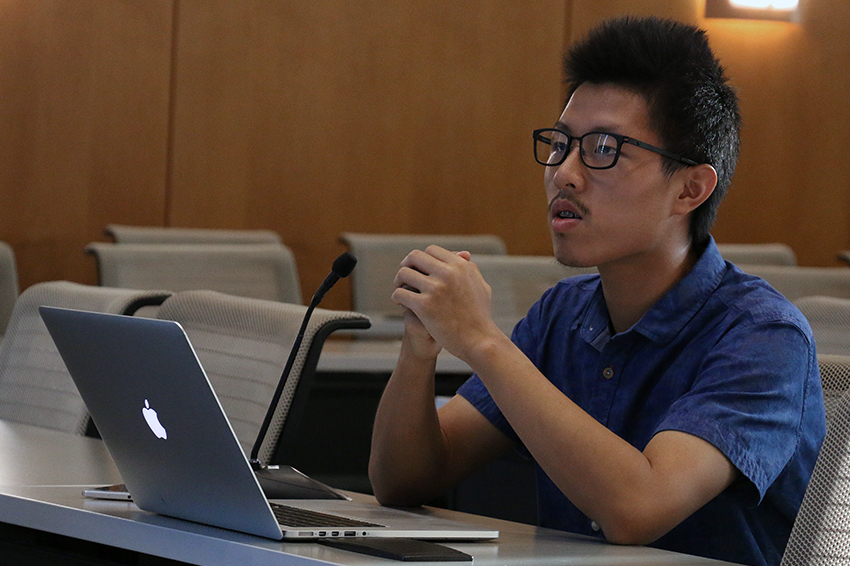UT Supreme Court held a hearing Tuesday on complaints filed by first-year representative candidate Jason Lyu on fliers from other candidates who he believes violated campaign rules.
Lyu filed two complaints against two of the candidates he is running against: biology freshman Maher Rahman and advertising sophomore Duriba Khan.
“I did something right,” Lyu said after the hearing. “The hearing was more formal than I thought it would be, but I think they will both be found wrong.”
However, Lyu might actually be the one at fault in this case. During the hearing, he said that after finding the fliers he believed violated election code, Lyu removed the fliers before making an official complaint to the Supreme Court.
The Student Government Election Code states, “No candidate, agent, or worker shall remove, obscure, or damage any sign, which is in compliance with the posting policies of that locale.”
“The point of the Supreme Court is to adjudicate what is a rules violation and isn’t a rules violation,” Chief Justice and economics senior Jordan Durrani said during the hearing. “It seems to be that by you taking down the post, you no longer left the court to decide whether it’s a violation.”
Durrani added that Lyu taking down the other candidates’ campaign fliers might actually be a worse offense than the complaints he submitted against Rahman and Khan.
“On face, that sounds more like of an egregious offense than simply putting fliers in the wrong area,” Durrani said. “You took it upon yourself to play judge, jury and executioner.”
Lyu’s complaint against Khan rested on election code rules that fliers must indicate the candidates are running for SG. Khan’s flier did not mention SG but did have “first-year representative” stated on the document. Khan said after the meeting that she believed the whole situation to be a misunderstanding.
“I feel like it was just a misunderstanding,” Khan said. “I did get my posters approved by the Court. I made sure to follow all the guidelines. I’m glad it got cleared up.”
Rahman said Lyu’s complaint against him was viable. Election code states that campaign materials couldn’t be posted on telephone poles on the University campus. Rahman said he didn’t know the telephone pole at Whitis Avenue and Dean Keaton Street was on campus.
“I didn’t read the hundred-page document [the Supreme Court] sent to me. It was a gigantic, legal document,” Rahman said. “I’m used to the Forty Acres because all of my classes are at Welch and that area. It’s right next to Guadalupe. It feels off-campus.”
Supreme Court will make a decision based on the hearing and inform the candidates before student voting begins Wednesday.















